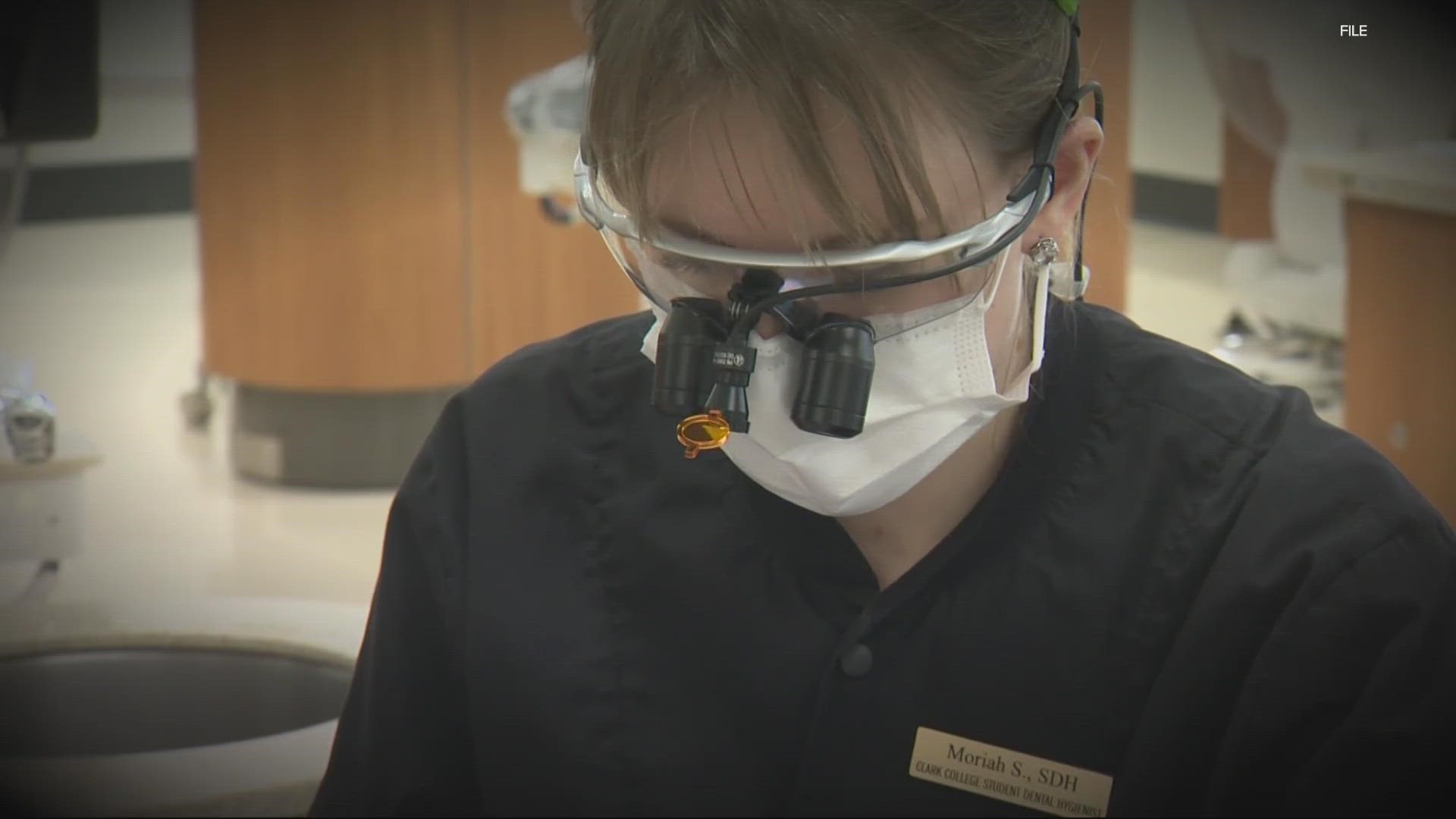SALEM, Ore. — A new bill aims to address a major staffing shortage in Oregon's dental industry, specifically among dental assistants and hygienists.
House Bill 2979 would put $20 million toward funding, training and education programs for college and high school students as well as on the job training. It would also expand existing incentives for dental professionals serving in high need areas.
“Truly this is a problem for the entire state,” said Dr. Caroline Zeller, a dentist at Oregon Health & Science University. “Patients are having to wait a lot longer. Patients that have infected teeth, patients that are in pain.”
According to The Oregon Health Authority dental offices lost 56 percent of their staff during the first year of the pandemic. For perspective, physician offices lost 11 percent. The problem according to many in the industry, is not enough aspiring dental care professionals in the pipeline.
“I can speak to how difficult it is to hire a dental assistant because I have had advertisements out for the last three years without much success,” said Representative Hai Pham (D-Hillsboro).
Pham is the bill’s chief sponsor as well as a pediatric dentist. On Tuesday, he and others testified before the House Committee on Behavioral Health and Health Care.
“Creating a publicly accessible training module for dental assistants will help create more opportunities for individuals who want to enter the dental profession, particularly those in rural areas,” said Pham.
Representative Cyrus Javadi (R-Astoria) also testified in support of the HB 2979. Javadi practices dentistry on the north coast and also stressed how much more difficult the staffing crisis is in rural areas without access to training programs in their communities.
“The closest training program is two hours away,” said Javadi. “It's too much of an ask for people interested in the dental profession to change their entire life to move closer to these training programs.”
For providers like Dr. Zeller their concerns always go back to what it means for patients.
“Having to cancel or schedule them months later has massive effects not just on how they're feeling today but what their oral health is in the future,” said Zeller.
Some dental professionals are concerned HB 2979 doesn't do enough to address dissatisfaction over pay, specifically among dental assistants. They believe that's one of the main reasons people aren't filling open positions and that improving access to training isn't enough to address that frustration.

